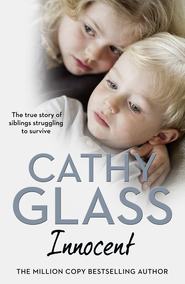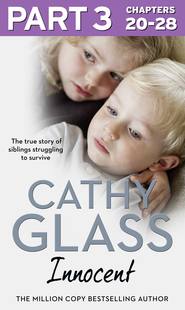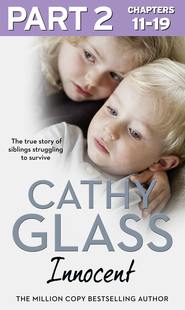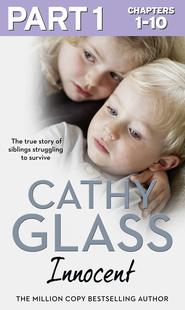По всем вопросам обращайтесь на: info@litportal.ru
(©) 2003-2024.
✖
Where Has Mummy Gone?: A young girl and a mother who no longer knows her
Настройки чтения
Размер шрифта
Высота строк
Поля
Chapter Twenty-Three: Robbed of Dignity (#litres_trial_promo)
Chapter Twenty-Four: True Heroes (#litres_trial_promo)
Chapter Twenty-Five: Introductions (#litres_trial_promo)
Chapter Twenty-Six: Overtired and Emotional (#litres_trial_promo)
Chapter Twenty-Seven: Lucky to Have Her (#litres_trial_promo)
Chapter Twenty-Eight: Family (#litres_trial_promo)
Suggested topics for reading-group discussion (#litres_trial_promo)
Cathy Glass (#litres_trial_promo)
If you loved this book … (#litres_trial_promo)
Moving Memoirs eNewsletter (#litres_trial_promo)
Praise for Cathy Glass (#litres_trial_promo)
About the Publisher (#litres_trial_promo)
Acknowledgements (#u89ad7049-6922-5cbf-8b3d-66052439c870)
A big thank you to my family; my editors, Carolyn and Holly; my literary agent, Andrew; my UK publishers HarperCollins, and my overseas publishers, who are now too numerous to list by name. Last, but definitely not least, a big thank you to my readers for your unfailing support and kind words. They are much appreciated.
Chapter One
Familiar? (#u89ad7049-6922-5cbf-8b3d-66052439c870)
I was sure I’d heard it all before …
The child I was being asked to foster had been badly neglected for years by her single mother, who was an intravenous drug user and alcohol dependent. The social services were going to court later that morning to bring the child into care. Melody was eight years of age and had been sleeping on an old stained mattress on the floor of a damp, cold basement flat with her mother, and they were about to be evicted. She hadn’t been attending school, and despite the social services putting in support, there was never any food in the cupboards and she and her mother were often hungry, cold and dirty.
‘She is also very angry,’ Jill, my supervising social worker from the agency I fostered for, continued over the phone. The referral from the social services had come through her.
‘The mother is angry?’ I asked.
‘Yes, and Melody – her child – is too. She tried to kick and thump the social worker when she visited yesterday and threw something at her when she began talking to her mother. The social worker will take a police officer with her when she removes Melody, assuming the care order is granted.’
‘Is there any doubt?’
‘There shouldn’t be, but you never can tell. It will depend on the judge. The case is in court shortly, so it’s likely to be early afternoon before they are with you.’
‘All right.’ Forcibly removing a child from their home wasn’t a good start, but if the parent wasn’t cooperating there was no alternative. The mother had been given plenty of opportunities to sort out her life and parent her daughter properly but had repeatedly failed.
‘Amanda, the mother, can’t control Melody,’ Jill said. ‘She’s failed to put in place any boundaries and Melody can easily become angry. One social worker described her as feral.’
One of the reasons I had been asked to foster Melody was because I had years of fostering experience, much of it working with children with challenging behaviour, and I knew why Melody was angry. Even though she had been living in appalling conditions and had not been looked after, she was being taken away from the mother she knew and loved.
‘She’s very loyal and protective of her mother,’ Jill continued, ‘and won’t hear any criticism of her. They both hate social workers. Melody does as she likes and is very much the one in control.’ Again, this wasn’t unusual for a child who’d had to raise herself.
‘And her father?’ I asked. Knowledge of the family helps the foster carer.
‘They don’t live together. It’s unclear if Melody sees him at all. He’s also an intravenous drug user. Both parents have served prison sentences for drug dealing.’ Which again I’d heard before. ‘Melody has four older half-siblings, different fathers. All those children were taken into care and then adopted years ago.’
‘Why leave it so long to bring Melody into care?’ I asked, almost sure of the answer.
‘Her mother, Amanda, is very good at evading the social services,’ Jill said. ‘She has been moving flats regularly and doesn’t answer the door when a social worker visits, or she gets someone else to say they don’t live there. The social worker only got access yesterday because the main door was open. It’s a multiple-occupancy house and their room is in the basement. The room was freezing, and Melody and her mother were watching television in bed with their coats on.’
‘Dear me,’ I sighed.
‘Amanda has been funding her drug habit from prostitution. If she’s brought the clients back to her room, there is a possibility Melody has witnessed her mother with them, and might even have been sexually abused herself. So be vigilant for any disclosures she may make. Oh yes, and she has nits,’ Jill added. This was common for children coming into care.
‘I assume Melody won’t be returning home?’
‘Highly unlikely. The social services intend to apply for a Full Care Order, so she will remain in care.’ Sad though this was, in cases like these there really was no alternative. It was too early to say if Melody would have the chance of being adopted, but aged eight and with behavioural problems it was unlikely.
‘So, Cathy,’ Jill said, rounding off, ‘that’s it really. Neave, the social worker, will phone once she’s left court, then she and a colleague will take a police officer to collect Melody from home and come to you. I’ll try to be with you when she is placed.’
‘Thank you.’ Jill, as my supervising social worker, offered support and made sure I had all the information I needed and the correct placement forms were signed when a child was placed.
‘See you later then,’ she said, and we said goodbye.
Yes, it was a depressingly familiar story, which I was sure I’d heard before about many children brought into care. As it turned out, I couldn’t have been more wrong. There was another side to Melody’s story, which at this point no one knew.
Chapter Two
Safe and Happy (#u89ad7049-6922-5cbf-8b3d-66052439c870)
Even after many years of fostering I’m still slightly anxious before a new child arrives, wondering if they will like us and what I will be able to do to help them. Now I had the added concern of Melody’s angry and challenging behaviour. But by lunchtime I’d given her bedroom a final check, cleaned, hoovered and tidied all the communal areas in the house (I might not have another chance for a while), then I tried to concentrate on the part-time administration work I did mainly from home. As a single parent – my husband having run off with another woman some years before – the admin work plus the small allowance I received from fostering helped to make ends meet. I’d have fostered anyway, even without the allowance. I enjoyed it, and it had become a way of life.
My three children – Adrian, aged sixteen, Lucy, fourteen, and Paula, twelve – were at school, so they’d have a surprise when they arrived home to find Melody here, although it wouldn’t be a huge one. Adrian and Paula had grown up with fostering and knew children could arrive at very short notice. Lucy had been in foster care herself before I’d adopted her, so was only too familiar with the way the system worked. (I tell Lucy’s story in my book Will You Love Me?)
I had a sandwich lunch as I worked and it was nearly two o’clock before the front doorbell rang, signalling Melody’s arrival. I felt my pulse step up a beat as I left the paperwork on the table in the front room and went to answer the door. A female social worker I took to be Neave stood on one side of Melody and a male social worker was on the other, as if escorting her.
‘Hello, you must be Melody,’ I said with a smile. ‘Come in. I’m Cathy.’
Melody glared at me but didn’t move. ‘This is the foster carer I told you about,’ Neave said, and touched Melody’s arm to encourage her to move forward.
‘Get your hands off me!’ Melody snapped, angrily shrugging her off, but she did come in.
‘I’m Neave, and this is my colleague Jim,’ Neave said as they too came in.
Jim shook my hand. I guessed both social workers were in their early forties, and were dressed smartly in dark colours, having come straight from court.
‘Shall I take your coats?’ I offered, but Neave was already halfway down the hall, looking to see which room she should go in. ‘Straight ahead!’ I called. Jim took off his coat and also his shoes, which he paired with ours beneath the hall stand.
Другие электронные книги автора Cathy Glass
Innocent




 0
0











